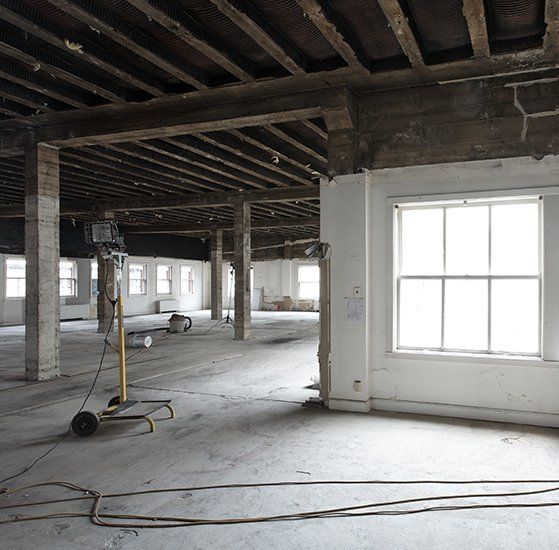Builders vs Contractors: Key Differences Explained
When you're planning to
build or
renovate your home in Mudgee, understanding the differences between builders and contractors can support more informed decisions and help you involve the right professionals. While many people use these terms interchangeably, recognising the distinctions can clarify responsibilities, improve communication, and guide you toward the right fit for your project's scope and complexity. In this blog, we’ll explore how builders and contractors differ and what that means for your next project.
Definitions: Builder vs Contractor—What’s the Difference?
A Builder is a Project Manager and Builder
- Oversees the entire building process from start to finish
- Manages design, council approvals, subcontractor coordination, materials, timelines, and quality control
- Acts as a single point of responsibility for clients
- Typically licensed and insured to deliver full building work
A Contractor is a Trade Specialist
- Hired to perform specific tasks or trade work (e.g. plumbing, electrical, tiling, framing)
- Works under instruction from the builder or project manager
- Responsible for delivering their part of the job to standard and on time
- Usually contracted for a defined scope of work
Contractual Responsibilities & Licensing
Builder Role
- Responsible for meeting all regulatory and compliance obligations (e.g. building codes, safety, energy rating)
- Holds overall insurance and oversight of subcontractors
- Responsible for the final product’s integrity and livability
Contractor Role
- Licensed in their trade but not responsible for the full build
- May have personal liability insurance for accidents within their scope
- Works under direction of the builder or project manager
Each build is managed with a professional, hands-on approach, supported by a trusted team of trade specialists to deliver both structured project oversight and quality trade execution.
Scope of Work: Who Does What?
Builder Scope
This typically entails:
- Initial consultations and quoting
- Design management and documentation
- Sourcing materials and coordinating suppliers
- Coordinating site preparation, foundations, frame, roof, and final finishes
- Managing timelines and budgets
- Ensuring quality checks and handover procedures
Contractor Scope
Specific trade tasks such as:
- Electrical wiring
- Plumbing
- Carpentry and cabinetry
- Painting
- Tiling or flooring
Contractors work within the framework set by the builder—delivering specialised services in a timely, focused manner.
Cost Structures & Billing Practices
Builders
- Quote entire projects—offer packages or fixed-price agreements
- Include allowances for trades, materials, site management, and administration costs
- Can be more cost-transparent if changes or variations occur mid-project
Contractors
- Quote only their portion of the work, often based on labour and material estimates
- Billing may be hourly, daily, or per job
- Payment is typically coordinated through the builder or project manager
When you hire a builder, you’re engaging a complete team; when you hire a contractor, you’re engaging one part of that broader mosaic.
Project Management & Accountability
Builders
- Confidently navigate planning approvals, scheduling, permits, and client communication
- Provide one clear point of contact and handle issues across trades and materials
- Responsible for site safety and coordination day by day
Contractors
- Complete their designated scope efficiently and reliably
- Follow the builder’s timetable and deliver standards
- Communicate progress and challenges to the project lead
Benefits of Hiring a Builder for a Full Project
For homeowners undertaking a full renovation or new build, using a builder rather than engaging multiple contractors offers several advantages:
- Streamlined communication: One point of contact for the entire build
- Reduced risk: Builder responsibility covers timeline, quality, and compliance
- Better time management: Builder schedules trades efficiently, reduces downtime
- Budget clarity: Builders manage budgets across trades and materials
- Warranty coverage: Builders typically offer warranties on overall work, not just trades
When Contractors Are the Right Fit
There are scenarios where engaging contractors directly makes sense:
- Specialised jobs: e.g. landscape construction, concrete polishing, custom cabinetry
- Minor additions or maintenance: such as replacing flooring, repainting, or update work
- Client supervision preference: some homeowners manage project coordination independently
Even in these cases, working alongside trusted contractors to deliver integrated results—maintaining quality and timeliness.
Specific Considerations for Homeowners in Mudgee
Mudgee has unique styles, council requirements, heritage overlays, and environmental factors. Local builders understand:
- Regional soil and climate impacts on footings and materials
- Council approvals and tenure issues especially in heritage zones
- Supply access and delivery times to rural lot locations
By engaging a local builder, clients benefit from regional experience and proven trade networks within Mudgee and surrounding areas.
How We Combine Builder & Contractor Expertise
Process includes:
- Consultation & design: we work with you to create plans aligned with your vision and local codes
- Trade coordination: we manage licensed contractors with vetted experience in each scope
- Site leadership: we supervise progress daily, ensuring timeliness and quality control
- Final sign-off: we deliver the completed home with full structural and finishing integrity—supported by warranty
You receive the best of both worlds: integrated service and expert delivery.
Choosing the Right Fit for Your Project
Choosing the right professional for your project depends on the scope and complexity of the work. For new home construction, a builder is generally the better choice, as they can manage the full process from start to finish. Similarly, for major kitchen or bathroom renovations, builders typically oversee all involved trades, whereas a contractor may only handle part of the job.
For smaller, one-off tasks or minor repairs, hiring a contractor is often more appropriate, as engaging a full-service builder may be unnecessary. If your project involves design work, approvals, or council-related processes, a builder is usually equipped to handle these requirements, while contractors typically are not. Builders also tend to manage the overall budget and timeline, while with contractors, these aspects may need to be coordinated separately by the client.
Talk to Our Builders in Mudgee About Your Renovation Today!
At Jaycee’s Constructions, we pride ourselves on delivering both the trust and accountability of a licensed builder and the care and trade precision of high‑quality contractors. Whether you're planning a new home or renovating your living space, working with a team that understands both roles ensures a streamlined process and a finish that lasts.
If you’re looking for reliable and professional builders in Mudgee—with the flexibility of contractor-level trade expertise—get in touch with us today.








